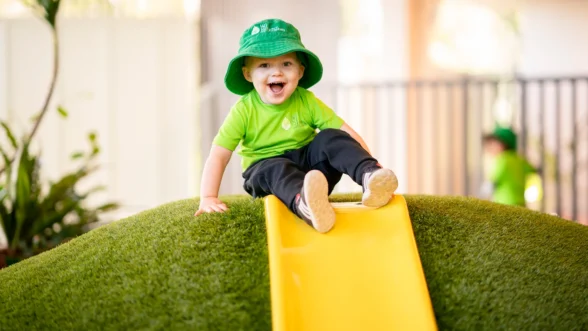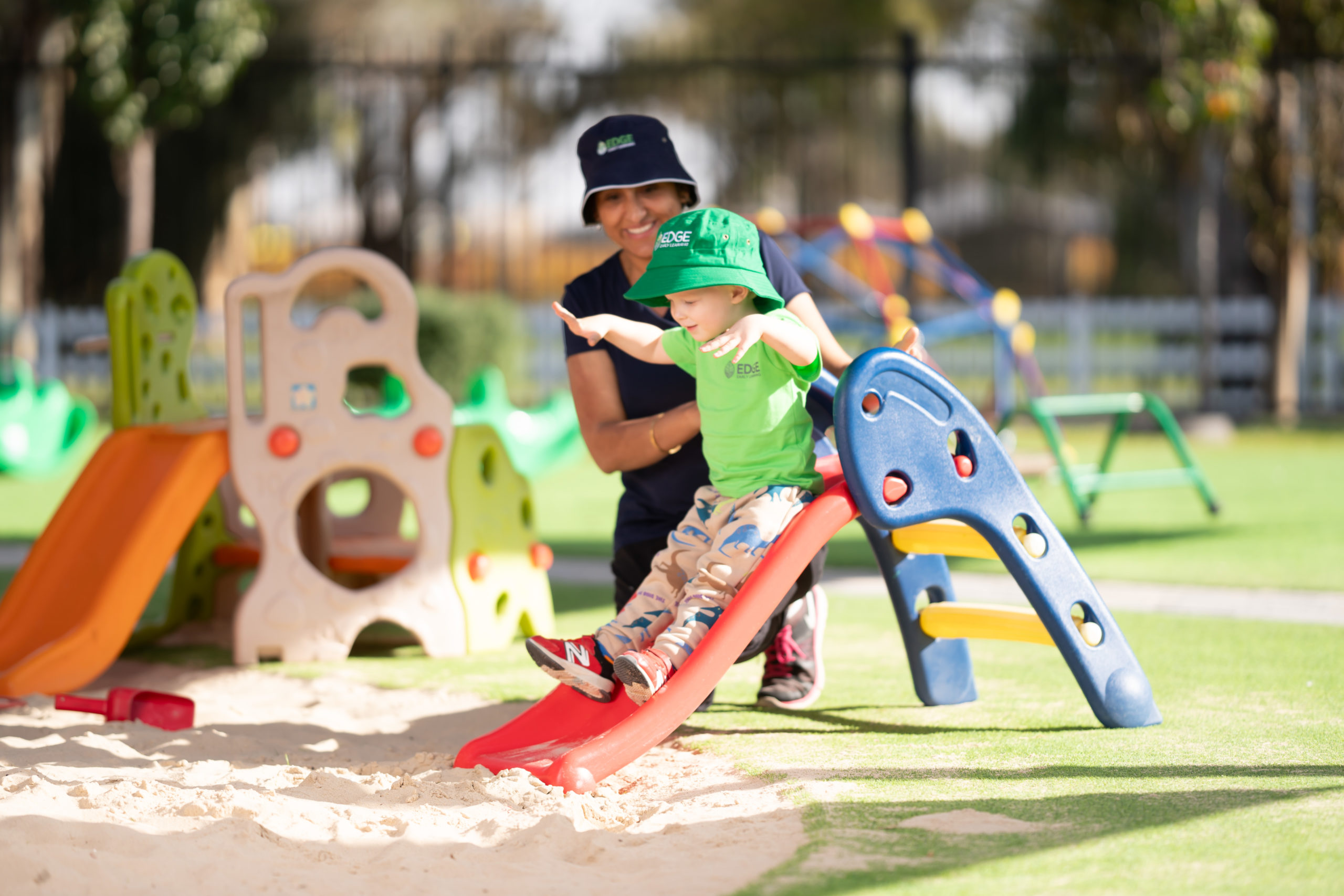
Education, Wellbeing
Education
20 August, 2026

Early childhood experts worldwide agree the best way for children to learn is through play. Play-based learning builds on children’s natural curiosity and gives them the freedom to explore the world, ask questions and figure out how things work in a safe way.
What is play-based learning?
Play-based learning is simply learning through play. In an early childhood learning context, there is a little more to it than that. While play-based learning can occur organically, educators are skilled at collaborating with children, providing materials to support their play and asking questions to guide them towards learning outcomes.
Why is play-based learning important?
Play-based learning can help a child’s development in so many ways. Because play can be so broad, it gives children the opportunity to grow cognitively, socially, emotionally and physically.
The cognitive benefits of play-based learning
Play-based learning encourages curiosity, exploration and problem-solving through exploring different roles and scenarios. When children play with peers, they develop language skills as they learn to communicate and negotiate with each other. They learn about mathematical concepts as they add and take away items or divide them among playmates. Children develop skills in critical thinking as they consider ways to solve problems.
The social and emotional benefits of play-based learning
Play-based learning can help teach children resilience and empathy and gives them practice at regulating their emotions. It is an opportunity to learn about sharing, cooperating and resolving conflicts with siblings, parents or other children.
The physical benefits of play-based learning
Sports and structured outdoor games are great play-based learning activities with so many fantastic learning opportunities. Active play develops motor skills and coordination. Activities such as running, jumping, climbing and dancing improve large muscle group coordination and strength, as well as benefiting children’s balance and agility. Activities that involve manipulating small objects, such as balls or quoits, help to develop hand-eye coordination and fine motor skills.
Play-based learning sets the foundation for future learning
Perhaps the best aspect of play-based learning is that children want to do it – it’s engaging and fun and motivates them to learn. This sets them up with a positive attitude towards future learning.
Play-based learning activities
There are many simple ways parents and caregivers can try play-based learning at home including:
Edge Early Learning supports play-based learning
Our educators at Edge Early Learning specialise in play-based learning and support children to learn through play every day. We love to respond to children’s interests and gently lead them into further exploration and discovery. You may like to explore more resources on learning through play on the Edge Early Learning blog, such as ideas for sensory play or imaginative play.